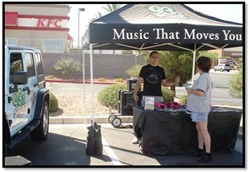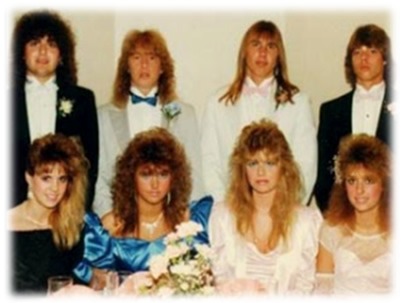As we close out 2012, we’re featuring the Best of JacoBLOG – the most-read posts of 2012. And if this one has a ring of familiarity, it’s probably because it ran just a couple of weeks back. It started out with me reading about coverage of Radio Ink‘s big conference in NYC, and it went from there. Emotions are still pretty charged up over this issue. See what you think. – FJ
OK, it’s true. I did not attend Radio Ink’s “Forecast 2013” event earlier this week, but I followed the conference on Twitter and through trade press articles.
This running theme about how radio is misunderstood by advertisers continues to amaze, perplex, puzzle, and yes, even anger me. As a programmer and programming consultant, I have spent nearly four decades helping radio stations achieve their ratings goals.
And more often than not, I’ve been successful. But in recent years, strong ratings matter less and less.
That’s because the age-old equation – “When you get the ratings, revenue will follow” – broke down a long time ago. Like the fighter that took a shot to the head in the 10th round, radio is still reeling from this reality punch. And in the process, pointing the finger at all the wrong excuses and rationalizations for why this is the case.
So when Radio Ink covers its own event, featuring some of broadcasting’s biggest companies, the RAB, and other entities that should be representing and promoting the best the industry has to offer, and we keep hearing that same lament – “If advertisers only knew our story” – you can cue up the primal screams.
If advertisers only knew our story?
Whose fault is that?
 While radio continues to pound the tired 93% drum, it misses what advertisers really want – results and solutions. Not rankers, trips to Cabo in February, or “value-added” remotes where eight people show up.
While radio continues to pound the tired 93% drum, it misses what advertisers really want – results and solutions. Not rankers, trips to Cabo in February, or “value-added” remotes where eight people show up.
Radio’s solution? Two interns, the tent, and the van. Assuming we haven’t already sold the van.
Every radio station in this country has success stories – amazing ways in which they’ve solved an advertiser problem, generated store traffic and sales, opened up new business paths, and created value for local and national businesses. Radio stations are loaded with impressive tales of fund-raising, heroic disaster coverage, and creating a personality connection with audiences on behalf of advertisers.
From the hometown car dealer to big tech companies like Constant Contact, radio has compelling stories to tell.
Problem is, we have the worst storytellers in the world.
If every radio rep was truly a P1 to the station that hired them, Radio Ink would have to come up with a whole new set of panels for Forecast 2014.
Earlier in the year, we worked with a broadcaster to help them launch a new rock station. The sales manager – who had no previous experience in the format – asked for some examples of great rock radio sales pieces, presentations, and collateral materials.
So we began a search, and the results were just this side of pathetic. Walk down to your own sales departments, and take a look at the quality of their presentations. Prove me wrong on this, because our little exercise led us to the conclusion that the sales strategies of too many stations today greatly resemble the “state of the art” from 1985.
Pet rocks, mood rings, and 18-49 adult rankers on a 4-book average. Dated, tired, lame, and ineffective.
We were embarrassed by what we saw – a lack of sophistication, an over-reliance on ratings, and a total lack of true success stories where putting together an integrated advertising program produced bona fide results for a client.
Today, ratings pale in comparison to a compelling story combined with a strategic, integrated approach and metrics accountability, wrapped around a creative concept. As I heard marketing guru Tom Asaker say at one of our Summits, “Stories always trump data.” Sadly, we aren’t hearing great storytelling at a time when it is so essential to radio’s ultimate success.
At Forecast 2013, MediaVest USA CEO Brian Terkelsen asked, “What’s new about radio?” to explain why his agency spends a paltry 1% of his company’s $9.9 billion on radio.
But perhaps the best comment came from Bill Koenigsberg, Horizon Media CEO, a well-respected player and as Radio Ink notes, “a huge friend of radio.”
His fix? “Radio needs to figure out how to have their prom and tell their story.”
A prom?
How about an intervention?
A “sales intervention,” to be precise.
If you’re one of those people who believes that radio no longer produces great content, ask yourself why that’s the case.
As Bill Clinton would say, “It’s arithmetic.”
Falling revenue has led to staff cutbacks.
Staff cutbacks have led to more multi-tasking and fewer people doing more jobs.
Radio has become an industry that has essentially written off engagement with the youth market, thus choking off radio’s appeal to young, fresh sellers, not to mention the buyers and planners who are today’s decision-makers.
The declining influence of ratings on revenue generation has created this cycle of fewer and fewer resources devoted to the product – and its marketing.
And this is during a time when new, bright shiny objects like Pandora and Google are calling on these same advertisers with energy, a great story, a digital play, metrics accountability, geo-targeting, and a great narrative. They don’t need a prom. They are successfully creating events of their own.
If the radio industry doesn’t address its sales strategy, these panels and conferences will continue to repeat themselves, frustrating attendees, to be sure.
As radio continues to look for the answers, the media world is moving on. This isn’t a “death by a thousand cuts” situation. There IS a smoking gun.
It’s sales.
- What To Do If Your Radio Station Goes Through A Midlife Crisis - April 25, 2025
- A 2020 Lesson?It Could All Be Gone In A Flash - April 24, 2025
- How AI Can Give Radio Personalities More…PERSONALITY - April 23, 2025





Fred. Falling revenues didn’t lead to staff cutbacks. It was the cutbacks that lead to falling revenues. The model has been broken since consolidation started. All you have to do is look at TV – which gets creativity from many sources- where revenues rise in spite of falling ratings and fierce digital competition. You can see the same thing in the best radio companies. There are good sales and revenue in those radio companies that cherish their talent and work closely with their sales people – the ones who see people as a resource rather than a cost center.
On the other side are the savvy finance guys who figured out how to loot an industry. The trouble… they were smart in math but knew squat about how to really manage or grow a business. Most had never grown anything in their life. But… money makes you smart. So, they believed their own story – then fired and destroyed everyone who disagreed with them. We watched those who challenged a flawed orthodoxy. We watched them fall – and few had the nerve to speak out. Too afraid. We’ve seen this movie before. In every totalitarian regime in history. People who believe that as long as they don’t say it’s wrong – they would be spared. But they weren’t. The firings continue.
Now, you have an industry where there are a few smart, committed operators who are trying to do it right and others who can’t do anything more than continue to fire people while trying to convince themselves and others that they can really see a way out. This is not a radio problem. It’s a management problem.
And, it’s bad for the industry.
I’m rooting for the innovators, the ones who aren’t afraid to admit they are wrong, who seek input from those on the ground, not those on top. The ones who don’t think they have all the answers and are willing to look for them. They are the ones to lead an ‘intervention’.
John, your last paragraph gives us hope for the new year. It is, in fact, the innovators – of which you’ve consistently been one – who will either break through OR move onto other industries where their input and ideas are more welcome. Radio needs to encourage innovation, a common theme voiced by the CEA’s Gary Shapiro. Whether broadcasters respect or revile him, making innovation an important goal will set radio free from this cycle of supposed addition by subtraction – which never works. People are at the fulcrum of radio’s future. We either embrace, educate, and grow our talent – on the air and in the cubicles – or this will be yet another tough year for the radio business. Thanks, as always, for contributing to the conversation, and best wishes for a great new year.
Radio will still be OK for a number of years – even if a few go bankrupt and somebody else picks up the assets. However, it won’t grow or attract good people until the mindset changes.
It all starts by understanding where you are on the Growth Curve.
https://www.gomediafix.com/tools/the-growth-curve/
To grow, radio must apply Phase 3 thinking on the Curve. The consolidators thought they were going to get away with living at Phase 2. I don’t think they teach the Growth Curve at business school.
That Phase 3 thing is a bitch and SO necessary for all of our businesses. Thanks, John.